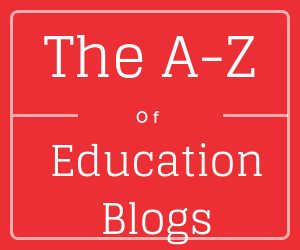Diverse Conversations: Finding a Mentor
Mentorship is a huge part of professional success in higher education. If nothing else, having a solid mentor helps higher education professionals to develop valuable contacts and integrate themselves into their employer institution.
Finding a mentor, though, can be a tricky thing. Some people are naturally good at formulating mentor-mentee relationships. Others simply don’t know where to start.
To get some insight into how higher education professionals can go about finding the right mentor for their career goals, I sat down with Dr. John Caron, senior associate dean, Academic and Faculty Affairs at Northeastern University College of Professional Studies, who has made mentorship a key area of his professional focus.
Q: Starting with a fairly obvious but important question, tell me some of the key benefits of having a mentor in a higher education professional setting?
A: I’ve found that having someone you can reach out to when you need advice or talk through an issue you’re dealing with is immensely valuable when working in a higher education professional setting. Throughout the course of my professional life, which spans about 25 years, I’ve been fortunate to have had many mentors at different points and times during my career.
One of the most influential mentors to me was a former supervisor who became a mentor to me for seven or eight years. As a first generation college graduate, I found myself wanting to pursue a doctorate degree while working full-time and I was trying to figure out how to make that goal happen. My mentor had actually gotten her doctorate while working full-time, so she was great at helping me map out the pathway and more importantly instill the confidence in me to make this happen. I don’t think that I would have done it without her – she was a role-model because she not only achieved it herself, but showed me how I could do it.
Q: What sort of mentorship has played a role in your career? What have been some of the key highlights for you?
A: One key role my mentors have provided me with is helping me navigate new positions in higher education that required a different level of leadership. For example, as you take on positions of increasing responsibilities, the leadership skills that worked in previous positions may not work. My mentors were very helpful in giving me advice about how to develop skills I needed to be an effective leader.
Q: Mentor-mentee relationships can be immensely valuable but they can also emerge in various different forms. What importance should higher education professionals place on finding a mentor who aligns to their professional goals? Is it important to choose a mentor who has, say, specific experience in the academic field you are targeting?
A: It definitely helps to have a mentor who aligns with your professional goals, but I’ve found that it’s not critical to choose a mentor with specific experience in the field you are targeting.
That being said, choosing a mentor in the field you are currently in or would like to pursue does help because he or she can help you prepare your CV properly, introduce you to key people and contacts and explain nuances of the field such as language, culture, expectations, etc. One of my mentors was in the same field as I am (higher education), so she knew about the experiences I was having and she could relate. There was a moment, however, when I decided to leave higher education and pursue an opportunity in the private sector. I asked my mentor what she thought about the move. She couldn’t really advise me about the private sector because she had always worked in higher education. She told me not to be risk averse and follow my instincts. If the fit wasn’t right for me, the experience would be valuable if I returned to higher education. It turned out that she was right. I use the insights I gained from my experience working in the private industry every day.
Q: Considering an example, if the goal was to transition from teaching to an administrative position, what type of mentor should a person seek out?
A: I would suggest that person seek someone who has made the transition herself or himself and can help that person navigate the differences and challenges.
Q: How do people in academia actually go about finding a mentor?
A: Some people find a mentor by working closely with someone and this can happen in a variety of ways such as through a faculty or teaching assistant relationship, a former supervisor, collaborating on a research endeavor or grant opportunity, or asking a professor to read an article and provide feedback and suggestions. I have found two of my most influential mentors by working closely with someone – they were former supervisors of mine.
My first supervisor and I became friends through work and then colleagues after I moved on from that job, yet we managed to stay in touch. A lot of advice was actually given to me on the tennis court because we both liked to play tennis. We would also see each other at conferences, make a point to have breakfast together or lunch, and I would just call her up when I needed to talk to her. I think that goes to an important point that having a mentor requires some work – you have to cultivate the relationship and you need to stay in touch. It doesn’t really work if you go two to three years without talking to each other; it really works best if you stay in touch on a regular basis.
This person mentored me for seven to eight years, but unfortunately passed away about 10 years ago. After that there was a long time when I didn’t have a mentor. I started to realize that something was missing – like my compass wasn’t working – and someone pointed out that I hadn’t had a mentor in about five years, and suggested I find another. I ended up getting a job at Brown University and my current supervisor at the time evolved into a mentor/friendship relationship.
I’ve found my mentors through close professional relationships, but for others it can also happen by chance. Conferences are a great way to meet colleagues and professionals. Additionally, if you are presenting at a conference, you may be approached by someone who has feedback on your topic of expertise, and an initial conversation can flourish into a mentorship.
Q: What are some of the best resources for finding a mentor?
A: I would start by looking beyond the obvious. If you’re only looking within your department to find a mentor, expand your search. Consider groups and organizations you’re a member of, or even reach out to individuals you are affiliated with through LinkedIn. You can approach someone in a leadership role in your organization to see if he or she can help you find a mentor, especially if you are looking to grow in a specific area within your organization or would like guidance in your field or even in another field you are interested in pursuing.
I believe finding a mentor is more often an individual experience; you need to be willing and able to seek out a mentor. No one is going to walk up to you and kindly offer to be your mentor. Therefore, it’s important that you take initiative to seek out the help and guidance that you need.
Right now I’m working with a consultant and over time I’ve found that he’s really become more of a mentor to me. I can imagine that when our consulting relationship ends, I will continue to seek him out as a mentor because we’ve just clicked. And that brings me to an important point: you know when you’ve found the right person when you both click. And if you find that you don’t have that click you should keep looking because sometimes it doesn’t work out.
Q: Have you found that some institutions actively cultivate mentorship and if so, how? What are some of the more effective strategies?
A: I have heard or have worked at companies or institutions in a consulting role where they have programs in place where you can request to shadow someone in a different department, or you can be paired with someone at a senior level to talk about career advice and aspirations.
Colleges and universities or companies that are intentional about this, especially for entry-level and even sometimes mid-level employees, can create a structure or pathway for their employees that can be enormously helpful.
Q: What advice would you give about utilizing a mentor relationship? What are some of the best ways to make use of this type of relationship in higher education?
A: It’s great if you can find a mentor who you trust and who stays with you throughout your professional career. Some people have more than one mentor, like I’ve had, to help them navigate different aspects of their personal and professional life.
I would suggest that once someone finds his or her mentor that they be flexible with that person; because many mentors are executives, they are by nature, very busy.
I would also recommend to be grateful. Your mentor is giving his or her time to you in exchange for the pleasure of watching your career unfold. He or she has no ulterior motive, make this person glad he or she signed on. Don’t just reach out to your mentor when things are not going well. Share your positive stories with your mentor as well.
For the most part, a good mentor knows you really well and that person will be honest and supportive. I trusted the feedback that one of my mentors gave me because she could give it to me in a way I could hear it. It was honest but supportive, but wasn’t harsh. It allowed me to reflect on our conversation and really contemplate her advice and recommendations.
And if you don’t find someone that you click with, keep looking. Eventually you will find someone that you not only click with, but who will offer you invaluable advice and guidance through hopefully many different career paths and changes as you navigate higher education. And as your relationship grows, you might even find that your roles may reverse and that you will become a mentor to that person!
My thanks to Dr. Caron. This concludes our interview.




